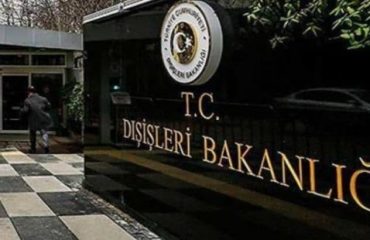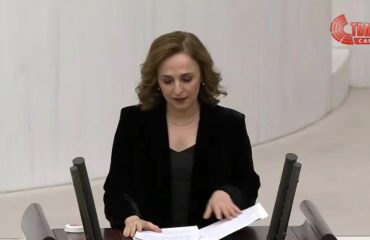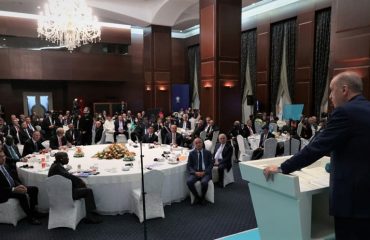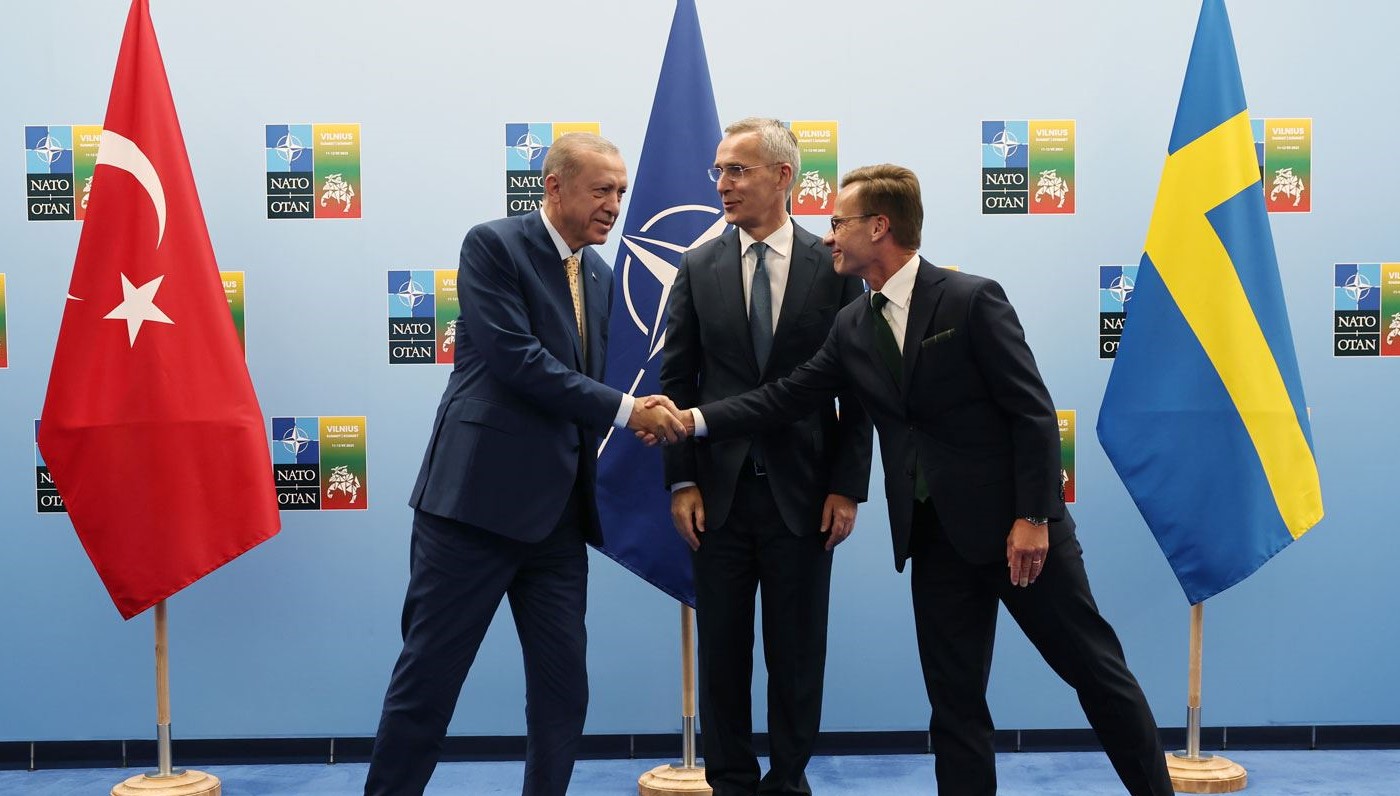
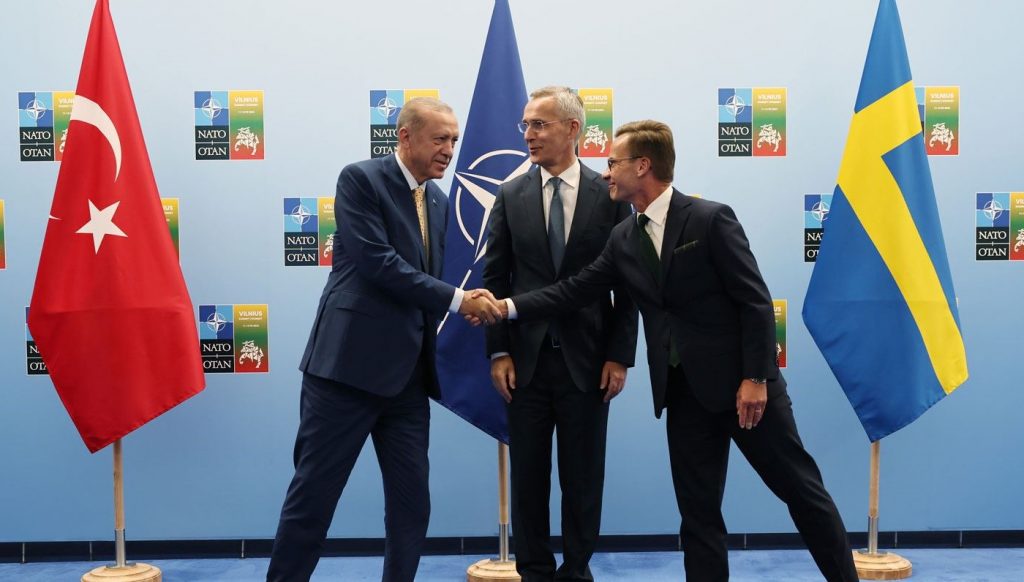
Erdoğan signed Sweden NATO accession protocol in the heat of the Gaza crisis. It could have been announced in the first week of October but postponed because of the October 1 PKK attack. The photo shows Erdoğan with NATO Secretary General Stoltenberg and Swedish Prime Minister Kristersson (far right) during the Vilnius Summit in July 2023.
Turkish President Recep Tayyip Erdoğan surprized Turkish public with his decision to sign the NATO accession protocol of Sweden while there was both international and domestic expectation that he would make a move about Gaza Crisis
On October 23, the Communications Directorate announced that the President had signed Sweden’s accession protocol to NATO and sent it to the Turkish Parliament for approval.
This was a surprise for the Turkish public. Because on his return from Hungary on September 21, when asked whether he would send Sweden’s membership request to Parliament when Parliament opens on October 1, as he told US President Joe Biden at the NATO Summit in July, Erdoğan said:
“The fact that it will be sent (to the parliament) and that the process will pass quickly through the Parliament is directly related to Sweden’s loyalty to its promises. (…) First of all, Sweden needs to protect the streets of Stockholm. If Stockholm does not take care of its streets, if these attacks on our sanctities and holy places continue, I am sorry”
On October 24, Nationalist Movement Party leader Devlet Bahçeli told that he was ready to fight in Gaza if necessary, and his stance on Sweden was clear: “Under these circumstances, it will not pass from the parliament”.
So, what changed and Erdoğan approved it? And why now?
Erdoğan was ready for Sweden decision if not for the PKK attack
Erdogan’s endorsement of Sweden’s stance on PKK protests and Quran burnings may have taken the Turkish public by surprise, but for at least part of the diplomatic community, it seems to have been expected at any moment.
According to information obtained by YetkinReport from diplomatic sources, major NATO countries, including the United States, were expecting Erdoğan to approve the Swedish protocol and send it to parliament the week the Turkish parliament opened in October – as he had promised NATO Secretary General Jens Stoltenberg and Swedish Prime Minister Ulf Kristersson – despite Erdoğan’s harsh remarks.
It appears that what dashed and delayed this expectation was the PKK’s attack on the Ministry of Interior, directly opposite the Turkish Grand National Assembly, on October 1, the very day the new legislative period began.
This was followed by the downing of a Turkish UCAV near Hasakah by a US plane taking off from Jordan on October 5, while the Turkish Armed Forces, in cooperation with MIT, were striking PKK-linked targets in Syria. In these circumstances, it was difficult for Erdoğan to give NATO (but especially the US) a Swedish gift. This was followed on October 7 by an unprecedented increase in civilian deaths in the Hamas attack on Israel and the Israeli attack on Gaza, and finally the hospital attack.
Sweden and Erdoğan’s group speech
Now, when all attention is on the Gaza crisis, Erdoğan quietly announced his decision on Sweden without making it a prominent issue.
It can be said that Biden’s linking of the Swedish issue with the sale of F-16s to Türkiye, which Erdoğan met “on the sidelines” during the G20 summit in New Delhi on July 10, was a turning point in Erdoğan’s decision. Likewise, Erdoğan’s Swedish decision could also be said to support Treasury and Finance Minister Mehmet Şimşek’s attempts to find resources to exit the ongoing economic crisis in the UAE.
The final point in this process was Erdoğan’s phone call with NATO Secretary General Stoltenberg on October 22, the day before the announcement, which was described as “they discussed Gaza”. From humanitarian aid to a ceasefire and a hostage swap, Gaza may have been discussed as well, as Erdoğan later apparently had a phone conversation with Hamas leader Ismail Haniyeh.
Eyes on the AK Party group speech
Erdoğan’s signing of Sweden’s NATO membership protocol and sending it to the Turkish Parliament does not mean that the process is over, but we can at least be certain that the AK Party group – with or without the MHP’s support – will take decisions in the Foreign Affairs Committee and the General Assembly in line with the President’s will.
A diplomatic source, who requested anonymity, said that he did not think the parliamentary process would take “too long”; Sweden’s NATO membership had already been paved the way. In the same way, it was expected for Türkiye for being paved the way. The same diplomat was waiting to see how Erdoğan would explain the reasons for the Swedish decision to the public when he is expected to address the AK Party group in Parliament on October 25.
Erdoğan’s meeting with Bahçeli in an unplanned meeting on the afternoon of October 24 at the Presidency seems to be linked to both the Gaza and Sweden issues.
Sweden and Finland wanted to become NATO members on security grounds after Russia launched the war in Ukraine, and Türkiye, which approved Finland after negotiations, put Sweden on hold due to the anti-terrorism conditions it deemed necessary for its own security.
